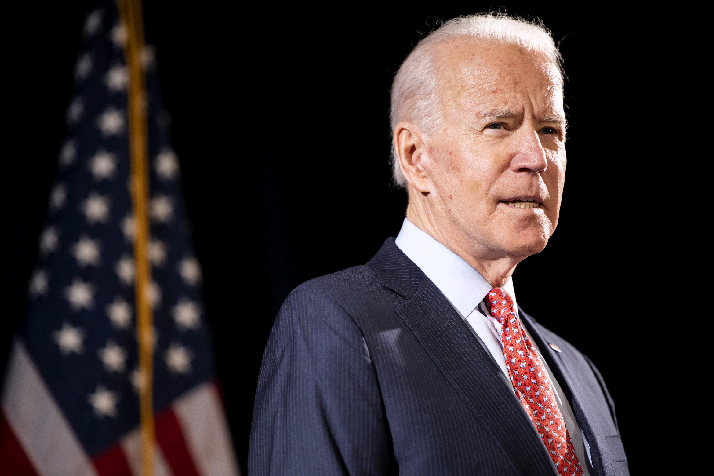The Biden administration is stepping back from enforcing its potentially unlawful federal vaccine mandate, due to the increasing number of legal challenges it has recently faced. The mandate, which requires federal contractors and businesses with more than 100 employees to force workers to get vaccinated for COVID-19, wreaked havoc on the U.S. economy for months. As a result, the White House finally admitted that it needs to suspend the policy.
The Occupational Safety and Health Administration (OSHA) announced through an official statement. that it’s suspending the mandate’s enforcement. The statement reads:
“On Nov. 16, 2021, the federal Occupational Safety and Health Administration announced it is suspending all implementation and enforcement efforts related to the Emergency Temporary Standard (ETS) on mandatory COVID-19 vaccination and testing in the workplace. The announcement follows the Nov. 12, 2021 order from the Fifth Circuit Court of Appeals staying enforcement of the ETS pending a final ruling on its legality. OSHA intends to resume implementation and enforcement of the ETS following litigation, if permitted. This newly stated position immediately impacts employers with 100 or more employees who are not federal contractors or otherwise subject to Centers for Medicare and Medicaid Services’ guidance. Such employers can breathe easier, as they are no longer faced with Dec. 5, 2021 and Jan. 4, 2022 compliance deadlines associated with implementing a vaccine mandate or weekly testing program.”
The Republican Party yesterday responded to the OSHA’s announcement that it’s suspending the federal vaccine mandate on its Twitter pager. The GOP tweeted: “Facing an onslaught of legal challenges, including from the @GOP, the Biden administration is suspending implementation of the vaccine mandate.”
The White House previously faced an obstacle over the mandate when the OSHA took a month-and-a-half to issue it over the summer. OSHA subsequently issued the ETS, which has been criticized for being ungrounded in the law.

“In the order, the Fifth Circuit accuses the current administration of shoe-horning the desire for a federal vaccine mandate into the best, but ill-fitting, vehicle the administration could find – an OSHA ETS,” the National Law Review noted. “The court points out that OSHA’s authority to establish emergency temporary standards is ‘an extraordinary power that is to be delicately exercised’ and criticizes the ETS vaccine rule as ‘a one-size-fits-all sledgehammer that makes hardly any attempt to account for differences in workplaces.'”
The appeals court ruling on the case also noted that the mandate doesn’t pass constitutional muster. “If the deficiencies we’ve already covered aren’t enough, other miscellaneous considerations seal the Mandate;s fate. For one, ‘[t]he Agency cannot use its ETS powers as a stop-gap measure,’ but concedes that that is precisely what the Mandate is intended to do here,” the ruling stated.
In addition to the court’s explicit reasoning, the delayed timeline from OSHA poses serious question whether or not the mandate is grounded in the emergency powers of the executive branch. There’s also the issue that OSHA is waiting until after the holidays to enforce the mandate, which emphasizes that the agency isn’t treating COVID as a true medical emergency.
It’s still uncertain if the federal appeals court will have the final say on the status of the mandate. However, the judges ruling on whether or not the mandate is constitutional said: “It lastly bears noting that the Mandate raises serious constitutional concerns that either make it more likely that the petitioners will succeed on the merits, or at least counsel against adopting OSHA’s broad reading of § 655(c) as a matter of statutory interpretation.
“First, the Mandate likely exceeds the federal government’s authority under the Commerce Clause because it regulates noneconomic inactivity that falls squarely within the States’ police power,” the ruling also states. “A person’s choice to remain unvaccinated and forgo regular testing is noneconomic inactivity.
“And to mandate that a person receive a vaccine or undergo testing falls squarely within the States’ police power,” the court continued, adding that precedent had long “settled that it is within the police power of a state to provide for compulsory vaccination.” [Jacobson v. Massachusetts (1905).] “The Mandate, however, commandeers U.S. employers to compel millions of employees to receive a COVID-19 vaccine or bear the burden of weekly testing. The Commerce Clause power may be expansive, but it does not grant Congress the power to regulate noneconomic inactivity traditionally within the States’ police power.”
“Second, concerns over separation of powers principles cast doubt over the Mandate’s assertion of virtually unlimited power to control individual conduct under the guise of a workplace regulation,” the ruling added. “The major questions doctrine confirms that the Mandate exceeds the bounds of OSHA’s statutory authority.”
The lawsuit in the Fifth District Court of Appeals, based in New Orleans, is just one of many being brought against the federal vaccine mandate. There are at least thirteen states that are planning on formally suing the Biden administration over its illegal decree: Alabama, Arizona, Georgia, Idaho, Indiana, Louisiana, Mississippi, Montana, Oklahoma, South Carolina, Utah, Texas and West Virginia.
